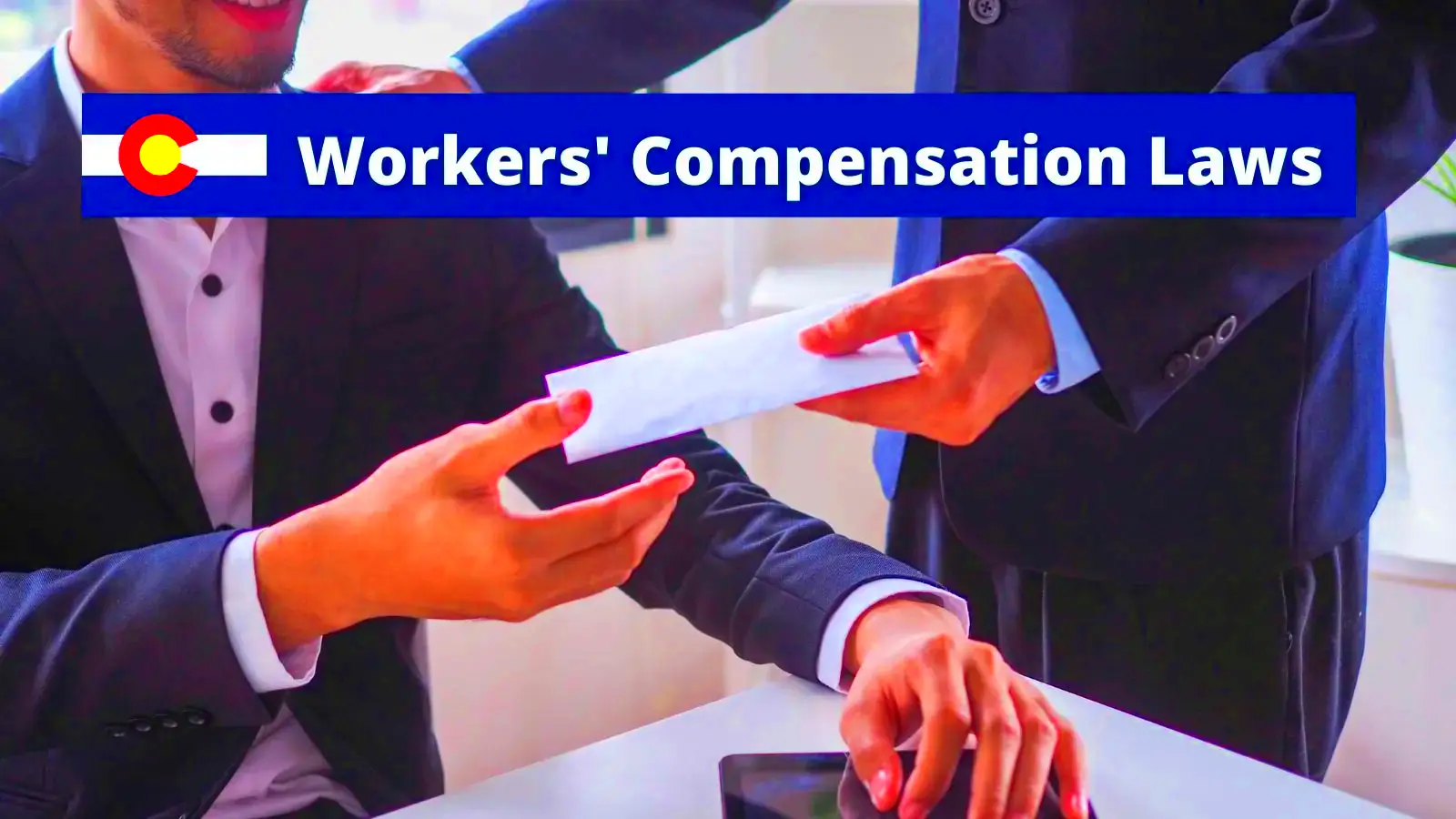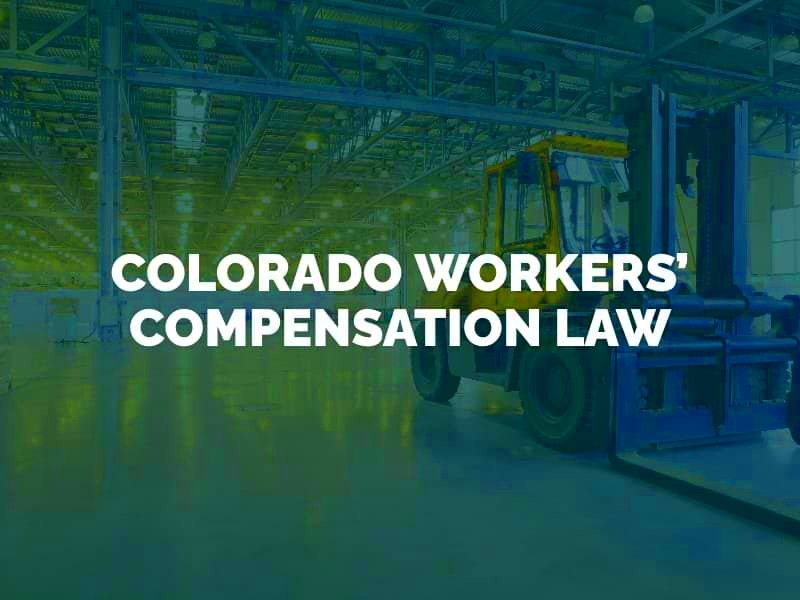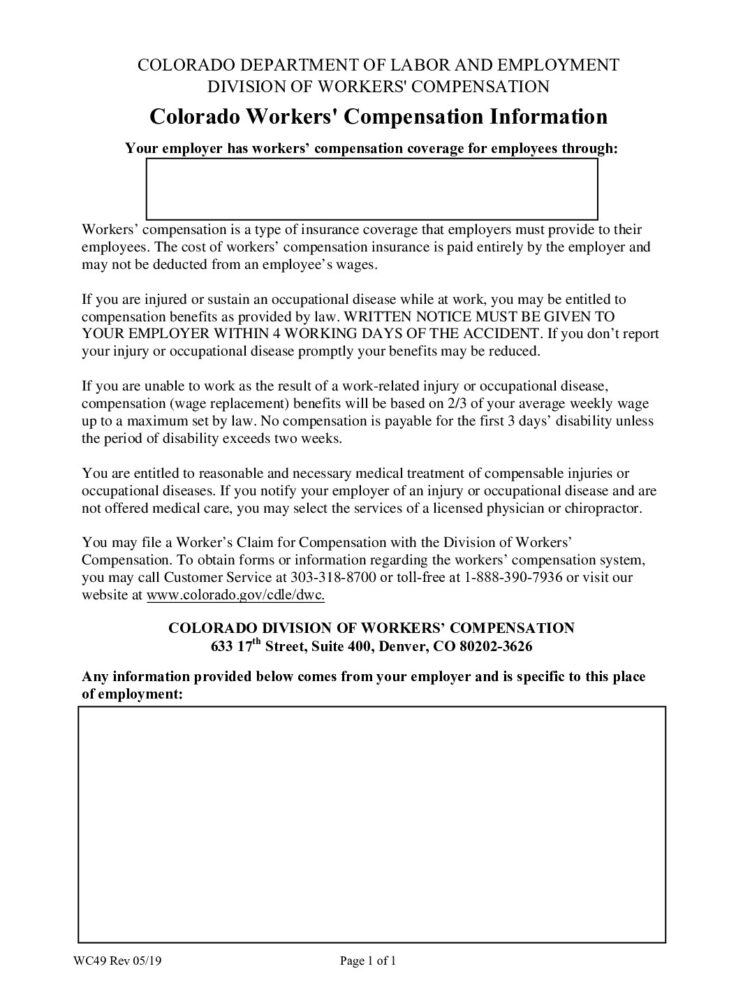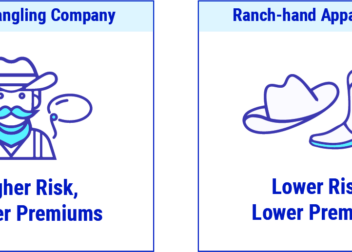Overview of Colorado Workers’ Compensation Laws
Injured employees are compensated for their injuries in Colorado through a worker’s compensation scheme which offers cash payments and medical bills payment. It serves as an important safety net and alleviates the impact of economic strain on behalf of injured staff. The system has been built upon a no-fault basis; hence any employee may gain access to these benefits irrespective of who caused the incident. To this end, it emphasizes on healing rather than assigning blame.
Key Features of Colorado Workers’ Compensation System

The Colorado workers’ compensation scheme has important features which help guarantee that injured workers receive the required support. Important elements include:
- No-Fault System: Employees can claim benefits without proving negligence.
- Employer Responsibility: Employers must carry workers’ compensation insurance or be self-insured.
- Types of Benefits: The system offers medical benefits, wage loss benefits, and vocational rehabilitation.
- Time Limits: There are specific deadlines for reporting injuries and filing claims.
This help for employees who were hurt makes everything more efficient and fairer.
Eligibility Criteria for Workers’ Compensation Benefits

To be entitled to workers’ compensation benefits in the state of Colorado, there are specific conditions that must be met by employees. This ensures that those who think about filing a claim have an insight into what they need to consider:
- Employment Status: You must be an employee, not an independent contractor. Employers must provide coverage for their employees.
- Type of Injury: The injury must arise out of and in the course of your employment. This includes physical injuries, occupational diseases, and psychological conditions related to work.
- Reporting the Injury: You must report the injury to your employer within four days of the incident to maintain eligibility.
- Claim Filing: A claim must be filed with the Colorado Division of Workers’ Compensation within two years of the injury date.
Grasping these conditions will enable workers navigate through the system effectively, and this will guarantee that they obtain the advantages which belong to them.
Types of Benefits Available to Injured Workers

In Colorado, if someone sustains an injury at work, they may qualify for different kinds of worker’s compensation assistance. The comprehension of these benefits influences largely what an injured worker goes through as they recuperate from the injuries and also when it comes to their financial security. The different categories under which employees get compensated include:
- Medical Benefits: Covers all necessary medical treatment related to the injury, including hospital visits, surgeries, rehabilitation, and medication. There are no caps on medical expenses, ensuring workers receive the care they need.
- Temporary Total Disability (TTD): If an employee cannot work due to their injury, they may receive TTD benefits, which typically cover about two-thirds of their average weekly wage, up to a maximum limit.
- Temporary Partial Disability (TPD): If an injured worker can return to a modified or less demanding job, TPD benefits may be available to compensate for the difference in wages.
- Permanent Disability Benefits: If the injury results in permanent impairment, the worker may qualify for permanent disability benefits, which can be either total or partial, depending on the severity of the impairment.
- Vocational Rehabilitation: For workers unable to return to their previous jobs, vocational rehabilitation services can help them find new employment opportunities or gain new skills.
Such benefits provide injured employees with full support during their healing journey.
Filing a Workers’ Compensation Claim in Colorado

Filing a workers’ compensation claim can seem daunting in Colorado, however it is made easier if you understand the process. Here is a step-by-step guide on how to navigate through the claim process:
- Report the Injury: Notify your employer about your injury within four days. This is crucial for maintaining eligibility.
- Seek Medical Attention: Get medical care for your injury. Ensure your healthcare provider is authorized by your employer’s insurance carrier.
- Complete the Claim Form: Fill out the official workers’ compensation claim form, known as the “Employee Claim for Compensation.” This form can typically be found on the Colorado Division of Workers’ Compensation website.
- Submit the Claim: Submit your claim to your employer’s insurance company. Keep a copy for your records.
- Follow Up: After filing, keep in touch with your employer and the insurance company to check on the status of your claim.
If you want to make sure that you get all those goodies that you desire; fill the forms promptly and adhere to these phases.
Role of Insurance Companies in Workers’ Compensation
In Colorado, insurance companies are essential components of the workers’ compensation system. They assist in managing assertions as well as ensuring that injured workers get what they deserve. Consequently, this is how the process integrates them:
- Coverage Provision: Employers are required to have workers’ compensation insurance, which helps cover the costs of medical care and benefits for injured workers.
- Claims Management: Insurance companies review claims to determine eligibility, manage benefits, and ensure that medical treatments are necessary and related to the workplace injury.
- Dispute Resolution: If there are disputes regarding claims or benefits, insurance companies often handle the negotiations and may represent the employer in hearings.
- Fraud Prevention: Insurance companies are also responsible for investigating claims for potential fraud, ensuring the system remains fair for all parties involved.
Injured employees may have an easier time going through their claims if they understand why insurers exist in the first place and what they will go through while making such claims.
Common Challenges Faced by Claimants
It can be an easy task to submit a workman’s compensation demand, however a lot of applicant experience problems in the way. When you know these common barriers, you will be able to prepare yourself so that you can move through the system better. The following are some of the common problems that people who have been injured at work face:
- Claim Denials: One of the biggest challenges is having your claim denied. This can happen due to various reasons, such as missing paperwork or not providing sufficient evidence of the injury.
- Delayed Benefits: Sometimes, there can be delays in processing claims, leading to a financial strain on the injured worker. This can occur if the insurance company requests additional information or if there are disputes regarding the claim.
- Medical Treatment Disputes: Workers may face challenges when it comes to getting the necessary medical treatment approved. Insurance companies may question the necessity of certain procedures or providers.
- Understanding Legal Terms: The legal jargon associated with workers’ compensation can be confusing. Claimants may struggle to understand their rights and the benefits available to them.
- Fear of Retaliation: Some workers worry about job security or retaliation from their employer for filing a claim, which can discourage them from pursuing their rights.
Knowing about these problems could give individuals making a claim power over the course of their own claims.
Recent Changes in Colorado Workers’ Compensation Laws
Workers’ compensation laws within Colorado State can change every now and then in order to give these workers better protection and make their claims simpler. Both employees and employers need to know about the updates. Recently, the laws have been modified in this manner:
- Increased Maximum Benefits: The maximum benefits for temporary total disability have been increased to better reflect the cost of living. This helps ensure that injured workers can maintain their standard of living while they recover.
- Telehealth Services: The acceptance of telehealth for medical evaluations has expanded, making it easier for workers to receive necessary care without the need for in-person visits.
- Streamlined Reporting Requirements: New regulations aim to simplify the reporting process for employers, helping to speed up claims submission and approval times.
- Enhanced Fraud Prevention Measures: Recent legislation has introduced stricter penalties for fraudulent claims, helping to protect the integrity of the workers’ compensation system.
A promise to upgrade the system and make certain that injured workers get quick enough support has been shown by these modifications.
Frequently Asked Questions about Colorado Workers’ Compensation
Workers’ Compensation in Colorado is a matter of curiosity for many individuals. Moreover, the following commonplace concerns serve to elucidate the course of action for injured employees. Below are some queried items:
- What should I do if my claim is denied? If your claim is denied, you can appeal the decision. It’s important to review the reason for denial and provide any additional documentation or evidence to support your case.
- How long do I have to file a claim? In Colorado, you generally have two years from the date of the injury to file a claim. However, it’s best to report the injury to your employer as soon as possible.
- Can I choose my own doctor? You may have the right to choose your own doctor, but it’s important to ensure they are an approved provider by your employer’s insurance company to have your medical expenses covered.
- What happens if I can’t return to work? If you cannot return to your job due to a permanent disability, you may qualify for permanent disability benefits and vocational rehabilitation services to help you find new employment.
- Are there any costs associated with filing a claim? Filing a workers’ compensation claim is typically free for the injured worker. However, it’s important to be aware of potential costs related to medical treatments or legal fees if you seek representation.
These FAQs may help dispel some doubts about workers’ compensation and enable employees to take the appropriate actions towards their recovery.
Conclusion on Colorado Workers’ Compensation Laws
Knowing the workers’ compensation laws in Colorado is essential for both employees and employers. The system provides injured workers with necessary medical treatment and financial support to help them in their recovery. By having no-fault coverage and different kinds of benefits, it allows workers to concentrate on getting better without being worried about money problems. However, this may be complicated by denial of claims and delays. Therefore, to improve claims, it is important to be up-to-date with the recent changes as well as rights and obligations in law. The end result is that all the parties stand to gain from navigating through the Workers’ Compensation System successfully.


